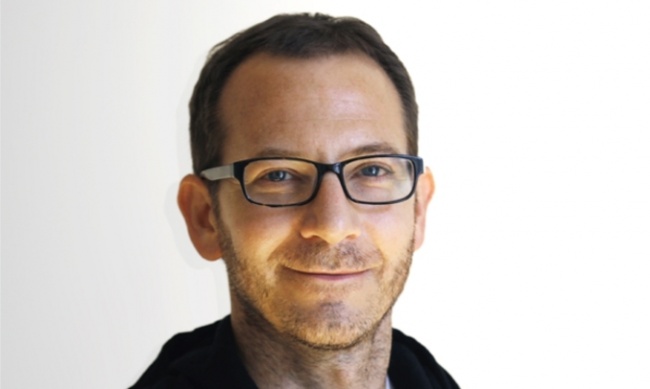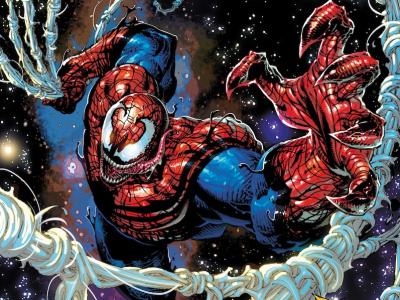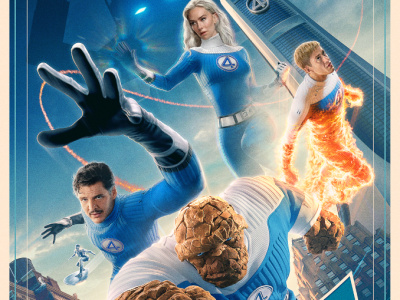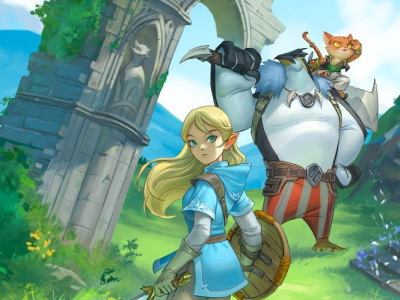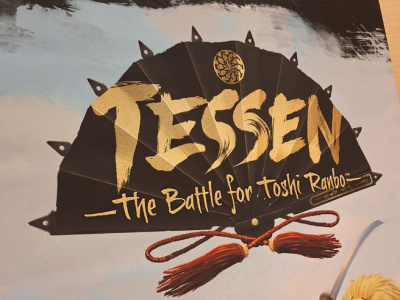Last week, former Wizard World executives Gareb and Steve Shamus announced a new company, ACE Universe, a New York-based “media and experiential events company” (see “Shamus Brothers Back in the Convention Business.”) ICv2 spoke with Gareb Shamus, the original founder of Wizard, to learn more about the new venture.
Why do you and Steve want to get back involved in this business?
I've taken a bunch of time off for myself to recharge, get away from it, and really have an opportunity to completely divest myself from that world, spend time with myself, both with my family, and also to explore my own creative vision as well, getting into painting and art.
My brother also took some time off. We were finally at a point where we can say to ourselves, "We don't have any legacy issues, we don't have any other parties that we need to satisfy. We can now start from scratch. What would we do?"
"What is the future of the superhero live experience, and technology‑oriented space for this industry, and for the superhero fans on a global basis?"
“Because we have the knowledge, the experience, the resources, the connections; how can we use all of that to create a fan experience anywhere in the world, where they could be a part of it and experience the superhero genre in a way that we love?"
That's what we were able to do.
You mentioned that with this new company, you don't have any outside people to please. How is the company funded?
Without getting into too many specifics, it's me and my family owning the company.
Do you have a plan for how many shows a year you want to do?
What we're doing is we didn't set out by saying, "We want to do X number of events per year." We're shifting the business model a bunch in the sense of we're not going to be in convention centers. We're going to be in arenas.
So many times, the way the convention centers work are that you're really at the liberty of whatever dates they have available. A lot of times that may or may not include one day over the weekend, the load‑in dates, all kinds of restrictions that make it very difficult from when you actually want to do a show.
Once you actually get the date, then you have to try to see if that date works for everybody else out there.
What we decided to do was do the reverse, which was bring in the franchise of what the core essence of what the event is going to be about, and then build an event around that. What we're doing is we're going after a lot of the talent and the celebrities, the top artists, and things like that first.
Once we're able to secure the talent and the celebrities, we could build an event around that. Because of the nature of how large the celebrities and the status of talent has become, we know that we could build a large event around the talent first.
From our perspective, we're not going to have very specific set dates at a particular time during the year. We're just going to be going after the most important, exclusive, best, hottest, coolest talent out there, and then building events around them.
Get the celebrities first, and then pick a location based on what's available for those dates?
Correct. Either pick a celebrity, or pick a theme, or pick something of that nature that we know that we could build an event around. Then find an arena that makes sense for us to be able to host the event in.
By putting them in arenas, it gives us a built‑in aesthetic that you don't get when you go into convention centers. Also, there's a tendency that when somebody is going to an arena, they feel like they're going to an event, they feel like they're going to something exciting.
There's an aura associated with going to an arena, because typically, they're probably going to a sporting event, a concert, or something that's really fun and exciting with your friends. We want to be able to thrive off that passion and excitement people have when they attend something at an arena.
We’re interested in your plans for arena venues. You said you're going to show panels on the Jumbotron. Does that mean the seating area will be just for viewing panels, or are you going to use the floor in the seating area for exhibits? How is that going to work?
What we're going to do is we're going to have a stage similar to what you might have at a rock concert, but then instead of playing to the larger part of the bowl, we're going to be almost creating our own amphitheater there.
What that also does is so many of the issues that we've heard from fans in the past is that they're busy at one side of the event, or they're in line for something, and they miss that panel that they wanted to see.
What we're doing is because of the nature of an arena and the simulcasting throughout the arena, no matter where you are, you're going to be able to see programming that's going on. Because of the Jumbotron, you could watch it anywhere you want as well, to see what's going on. We're going to be carving out this amphitheater‑type of setting for it.
It also opens up the opportunity for nighttime activities, because of the nature of being in an arena. Also, the other special part about being in the arena is, unlike a convention center, where the goal is to fill up as much space possible without care as to who or what is filling up that space, our goal is to create a much more curated experience.
Rather than trying to figure out how to get every single dealer that sells every type of product there, we're trying to attract the type of exhibitors, dealers, vendors, and people of that nature that can actually add value to the consumer experience and create an environment where people can either participate, be involved, or feel like they're part of it.
So many times now, you go to these events, take even music festivals, where people don't want to go and just listen to the music, they want to go and they want to participate. They want to go with their friends, and they want to be part of the entire event and excitement of it.
We want to be able to create the same type of fan engagement. All the types of channels or events that we're going to be creating are going to be a lot more of fan participatory, demonstration‑oriented, or things of that nature where fans can feel like they're part of the action.
Where will the exhibitor areas be?
There's going to be two sets of areas. One of them is going to be on the floor, and then the second part, we're going to be doing in the corridor area, the concourses.
This way, it gives people a chance to really experience the arena in the round, and then once you go around, there's certain areas where you can go down onto the floor and experience some virtual reality stuff that we're going to be doing.
We're going to be bringing technology into the event in a way that hasn't been done before by bringing in a lot of what's going on in the virtual reality and augmented reality space.
Looking at it from the outside, it seems like it's a pretty saturated market. Would you agree with that? If so, how do you overcome that?
Yes. We use the word that it's a saturated market, but it's also an underserved market, in the sense that there's a lot of events going on, but it doesn't mean that it's satisfying the fans in the way that they want to be satisfied.
The caliber of talent that we're getting don't make a lot of appearances throughout the year. From that perspective, we're going to have something that's very, very unique, and that also appeals to people on a global basis. That's one aspect of it.
The second part of it is, because of the nature of what we're doing (we're creating a very curated experience) the even greater part of our goal is to not just satisfy the excitement and the engagement of the fans that come to the show, but to be able to provide an experience for people on a global basis.
A lot of events tend to appeal to their local audiences and are not appealing beyond those borders. The way we look at what we're doing is we are creating an event with no walls, in the sense that we want everybody, anywhere, anytime to be able to experience what we're doing at the show.
The live streaming is free, so it's not like it's going to cost somebody money to be able to feel like they're there or experiencing it. Because of the nature of the arena, by its mere nature, the experience is going to be limited because we just don't have the ability to sell an unlimited number of tickets.
For the people that go and want to be there, they're going to have an immersive, exciting, unique experience, and people around the world are going to, hopefully, feel, or wish that they were there at that time.
Is the streaming going to be ad‑supported?
There's a bunch of different revenue models, but for us right now, we only have one objective, and that is to create a free experience for fans, no matter where or when they want to watch.
As part of those revenue models are advertising‑supported or sponsor‑supported, there's no question that we're looking into how to enhance that experience as much as possible. Because so many times, especially in the worlds that we've worked with, a lot of the advertiser‑sponsors are value‑added.
Any partner that we're working with ‑ and we've already got a few partners ‑ our number one question to them is, "What can we do to help engage the audience and create an experience for the audience?"
Therein lies the number one criteria of what we're doing when we approach people, and people approach us about working together.
That was the next question. You mentioned partnerships. Can you name any of the companies you've got partnerships with?
I can't name them yet, but they will be coming out as we announce. Everyone that we're working with is on how to engage audience. A lot of people have called me up, they're talking about their booth and this and that. For me, it's like, I don't even care. It's like, "What are we going to do to engage the audience? What type of experience could we create that's going to be a really fun experience for fans that want to relate to your products or relate to your service?" That's what these events are going to be all about. That's what the whole company is actually all about.
How does it make you feel to be competing with the company you started?
I don't feel like we're competing with anybody, actually. I know that a lot of people use those kind of cliché things, but the reality is that we're in a totally different business, or business model, I should say, than the company that I created, or any company, for that matter, in this business.
For us, it's about creating a really amazing fan experience, and as long as we do that, we're going to get people to come to our show, and we're going to get folks to watch us on live streaming. We're going to be pioneering in this space. We're always going to try to be ahead of the curve on almost everything that's going on out there, and to be able to provide that experience for people. As long as we do that, it doesn't really matter what anybody else is doing.



